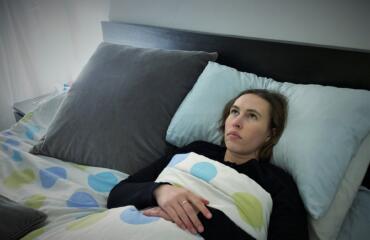‘Hospitals in developing countries are where the sickest children go and they are the ones who need the most urgent treatment. The care received in these hospitals is poor quality. Patients get the wrong care, inappropriate care, or miss out on treatment that could be lifesaving.
I would meet a family and know what treatment should be given. And although the cost might seem minimal to us, 10, 20 or 50 dollars, it was enough for that family to take a child home potentially to die.
My PhD looked at how to improve care in Lao by introducing hospital guidelines. By guidelines I mean a small book doctors can carry in their pocket. It gives them advice about how to treat the most common illnesses they see in their setting using the resources that they have available.
‘Care did change. Doctors and nurses, even those we hadn’t trained, wanted to use the book and apply it to the care they delivered.’
Through the translation and training process they really came to own it themselves. It generated a consensus locally and it was agreed that this is what should be done.
This was the first written book for paediatrics in the country in the Lao language and there was doubt about whether people would use it.
They hadn’t been accustomed to reading books because they hadn’t existed. The process was largely driven by a group of paediatricians in Lao that have been locally trained.
When we introduced the pocketbook we wanted to make sure they owned the book and the training.
The World Health Organisation had produced a book but no one had properly used it anywhere. We had the pocketbook translated and introduced to Lao paediatricians along with training.

We looked at nine hospitals that have the highest level of care to the district hospitals that are the most basic hospitals in those countries. We assessed the care given and the issues that existed before and after.
We found people who had never read before sitting in cafes or on wards reading this book trying to understand what it was about. People did read it. Even people who hadn’t been trained knew it existed and wanted to read it. Care did change.
Doctors and nurses, even those we hadn’t trained, wanted to use the book and apply it to the care they delivered. They felt care was more complete and standardised. Every hospital did the same and there wasn’t confusion about what treatment was right.
But the change was not complete. In some circumstances the doctors wanted to do something but the family or cultural beliefs made it hard to accept the treatment.
Some families wouldn’t allow us to conduct a lumbar puncture to diagnose meningitis because they were afraid the test would harm the child.
We are now in the process of revising the book and using it again to train other hospitals and other people.
That information is helping us think about other areas we need to focus on, such as educating families.
‘We found people who had never read before sitting in cafes or on wards reading this book trying to understand what it was about.’
The most rewarding thing has been to be involved in a PhD that was not just thinking about a topic in a laboratory but actually doing something that we feel has made a difference.
Now I’m helping coordinate the medical course for paediatrics at the University of Melbourne and also trying to build upon the work we have done in Lao.
We have young trainees from here now based in Lao. I supervise them, visit them and keep projects going.
When I go there now and ask a question people pull out the book. That’s a revolution from what it was five years ago.
While that was a frustration, because you are trying to get the work done and you want things to happen, it teaches you to take a breath sometimes. Things will happen in their own time.
I miss the life we had most. The people are incredibly generous and humble.
My Lao friends used to say: ‘Lao PDR, do you know what that stands for? Please don’t rush.’
Amy Gray’s PhD thesis is titled: “The implementation of paediatric hospital guidelines in Lao PDR: impact on quality of care and contextual factors affecting change.”
*My PhD is an irregular series in which The Citizen speaks with recent Melbourne University PhD graduates.



